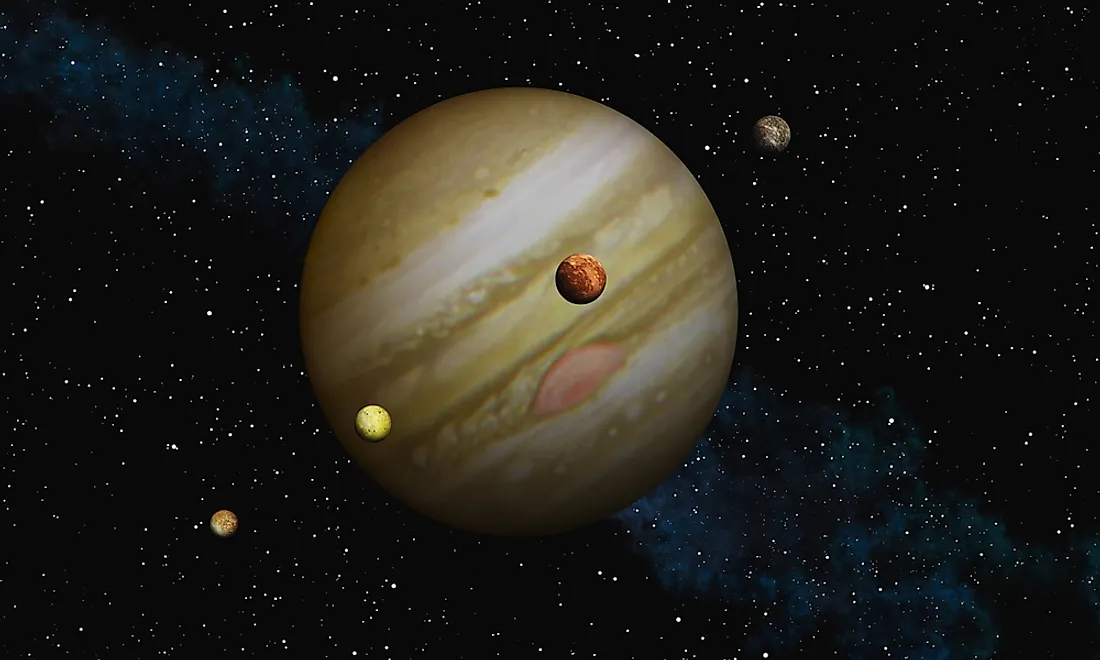the other mike
Diamond Member
And one of its' moons has a moon of its own.
Follow along with the video below to see how to install our site as a web app on your home screen.
Note: This feature may not be available in some browsers.


I didn't know that....thanks for posting.
Looking for moons in our Solar System I saw that Jupiter has......
Wait for it!
79 known moons! wow wow wow!!!!!!

The Moons of Jupiter
Jupiter has 79 recognized moons, the largest of any planet in the solar system.www.worldatlas.com
Much like the double planet Earth-Moon, Pluto's moon Charon is more like a double planetisimo. The rest are glorified rocks collected in the Kuiper Belt. But the odd thing is for a dwarf planet like Pluto to be so small and still have so many moons.Did you know Pluto has 5 moons ?
If NASA's budget had been even 1/10th of the Pentagon's over the last several decades, we would know so much more by now.Much like the double planet Earth-Moon, Pluto's moon Charon is more like a double planetisimo. The rest are glorified rocks collected in the Kuiper Belt. But the odd thing is for a dwarf planet like Pluto to be so small and still have so many moons.
And one of its' moons has a moon of its own.
I care a LOT about Pluto. It is our window into a whole other part of the solar system we barely know anything about.Do we really care about Pluto?
To the contrary, Pluto apparently has enough unexplained internal heat to allow periodic shifts and movement in the crustal surface, and IMO and many planetary scientists, is the most unexpectedly detailed, beautiful and delightful planet in the whole solar system!It's too far, too cold and not very interesting. With our limited NASA budget, isn't it better to visit Mars?
Party pooper.Do we really care about Pluto? I got the app on my TV.
It's too far, too cold and not very interesting. With our limited NASA budget, isn't it better to visit Mars?
In comparison to the fact that there are hundreds of billions, perhaps trillions of other galaxies outside of our own Milky Way, mmmmeh,...you may have a point.It's too far, too cold and not very interesting.
No one can deny the numbers, but the fact is nothing can live in outer space. A planet, moon, asteroid or whatever would need protection like that of what is on Earth such as magnetic field, atmosphere, oceans, etc. Maybe it would need oceans beneath the seafloor for survival in case of global warming. Look at what happened to Mars. It looks like Earth, but it didn't have the protection that we have and thus became barren and dried up. Now, we know we can't live on the moon nor Mars. Maybe Europa, but don't think it has a magnetic field and the its temperature may be too cold for living.In comparison to the fact that there are hundreds of billions, perhaps trillions of other galaxies outside of our own Milky Way, mmmmeh,...you may have a point.
Tardigrades and many other things survive dormant.No one can deny the numbers, but the fact is nothing can live in outer space.
Europa?A planet, moon, asteroid or whatever would need protection like that of what is on Earth such as magnetic field, atmosphere, oceans, etc.
Then why are we preparing to do it?Now, we know we can't live on the moon nor Mars.
Forget tardigrades.Tardigrades and many other things survive dormant.
Europa?
Then why are we preparing to do it?


Forget tardigrades.
NASA doesn't know. They think there is danger with no magnetic field and Mars' atmosphere. We know animals can survive in a ship and return. Likely, NASA will test with some other live animals on a Mars mission and expose them to no magnetic field and its atmosphere.
"Europa, the icy "cue ball" moon of Jupiter, has a relatively smooth crust of ice over a watery interior ocean. Cracks in the crust are due to the tidal forces of Jupiter’s mighty gravity. Scientists believe that Europa has the right conditions for some form of life to exist there today."
Would you go?No need for the astronomy lesson, I nearly became a professional astronomer. As to populating the Moon or Mars, etc., that will be done first by building underground to escape the Sun's radiation, then eventually with pressure domes. We really need to develop a long term Moon base and work out the kinks there first before thinking serious about actual Martian colonies.
Would you go?
You couldn't pay me to live on the moon, Mars or elsewhere. I think something damaging would have to happen on Earth for mass amounts of people to go for moon or Mars colonies. I doubt Amazon will deliver.
I would send evolutionists out to the moon or Mars in a heartbeat.
I didn't know that....thanks for posting.
Looking for moons in our Solar System I saw that Jupiter has......
Wait for it!
79 known moons! wow wow wow!!!!!!

The Moons of Jupiter
Jupiter has 79 recognized moons, the largest of any planet in the solar system.www.worldatlas.com